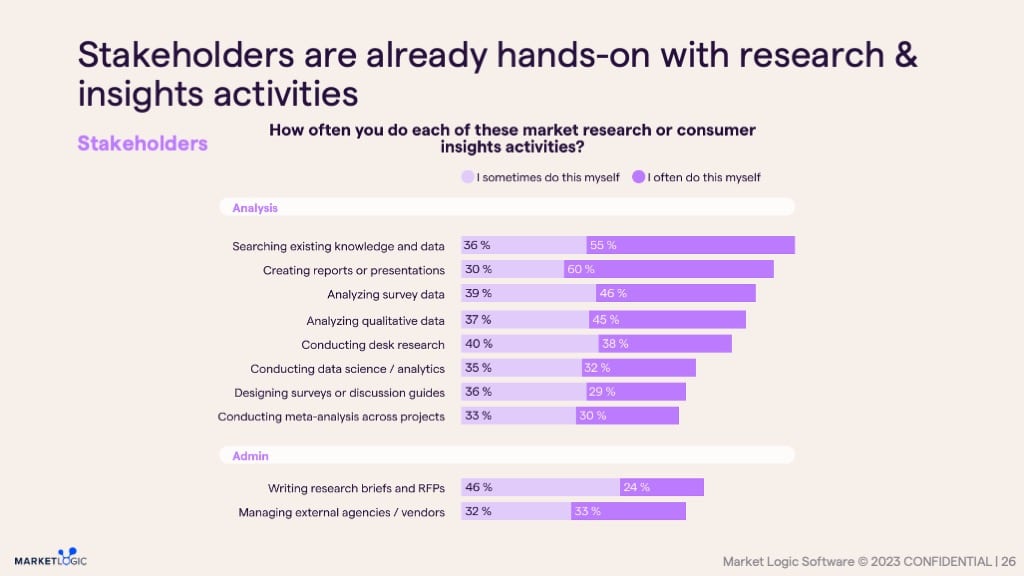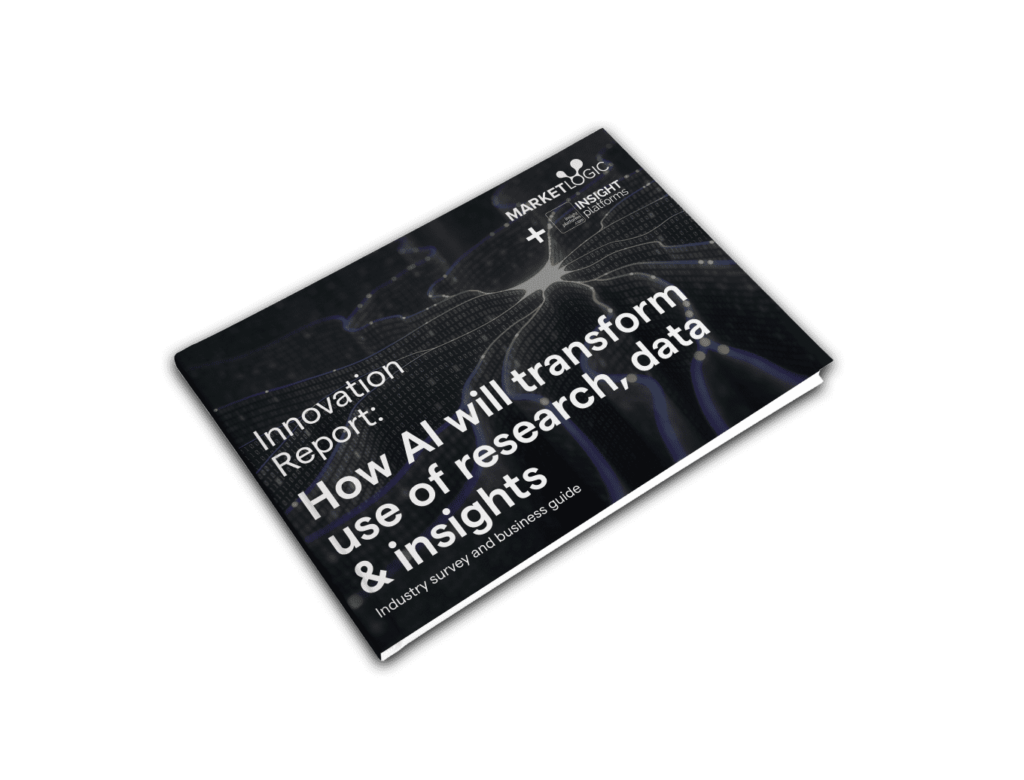A market insights expert deep dives into one of 2024’s key trends
In part one of our 2024 AI for insights trends special, we asked four market insights leaders to share their thoughts on emerging trends that will shape 2024 and learnings from the past year.
In part two, we are excited to welcome our first-ever guest columnist Mike Stevens. Get his industry prediction below and keep this in mind as you shift towards a more AI-driven approach in research and insights.
Mike Stevens, Founder & Editor of Insight Platforms
Mike Stevens is a leading consultant, advisor, and writer at the intersection of technology, research, and analytics. He has 20 years’ experience in insight, software, and consulting firms including Vision Critical, where he led the EMEA region; and Kantar, where he managed regional business units and global accounts.
In 2018 he founded Insight Platforms, a leading directory and knowledge hub for user research, consumer insight, and data analytics software and solutions. He also helps client teams and agencies to build capability, adopt technology, and implement process change.

Stakeholders are doing it for themselves
In a market that’s becoming more competitive, the key to driving business innovation lies in efficient knowledge research and management. In this field, AI technology is revolutionizing the possibilities for accessing and utilizing insights within organizations.
So, as we usher into this new disruptive era of digital transformation, one of the most fascinating trends we are witnessing is the democratization of knowledge within organizations. More and more, technology is assisting non-insights specialists in collecting their insights. This shift is changing the dynamics of how and where people engage with knowledge.
As a consequence of access to this new tech, an increasing number of stakeholders — business users in marketing, operations, sales, strategy, product management, or other roles (i.e. outside specialist insights or research departments) — are taking the initiative to do their own ‘DIY’ research and insights work than ever before. They are using AI and generative AI to conduct research, analyze data, and work with existing data, insights, or knowledge.
Stakeholders are embracing this change positively
As I’ve uncovered in a recent industry survey, co-ran with Market Logic and aimed at enterprises, the self-servicing trend is largely welcomed by stakeholders — who deem it a positive benefit of AI.

One business user shared:
I think the implementation of artificial intelligence is an incredibly positive, useful and helpful technology in aiding market research and consumer insights… I think artificial intelligence will change market research and consumer insights in a positive way because artificial intelligence is able to leverage predictive analytics to forecast future trends and consumer behavior accurately.”
A business user’s attitude to applying AI to research and insights
Meanwhile, insights teams are more polarized on this topic. Some deem it an opportunity to be embraced, as it frees up time for research time and gives insight professionals more room for “enhancing their consulting skills”. Others see it as a challenge due to the lack of expertise of stakeholders, who would require “training and onboarding, along with the need to answer a lot of ongoing questions.”
This shift affects everyone in the supply chain
While it’s only a new trend in the world of Consumer Insights and Market Research, this framework is well ingrained in the realm of UX and Product Research. Designers, product managers, and even developers surpass expert researchers in the category of ‘People Who Do Research’ (PWDR)’. According to a report on Continuous Research Trends released by Maze and Atlassian, the average ratio is eight PWDR for every three researchers.
These results suggest that the high demand for user insights has outpaced the bandwidth of most research teams and that organizations are scaling the impact of research through democratization. And we are seeing this echoed in the Research & Data industry too.

It’s time to embrace the democratization of AI for insights
In conclusion, as the adoption of AI is only set to increase, this democratization process will accelerate even further. AI-powered tools that put research, data, and knowledge directly into the hands of people who need it are blurring the lines around knowledge management – and what the flow of knowledge looks like within organizations. Navigating these changes will be one of the key challenges for insights leaders in the years ahead.
So it’s wise for senior transformation leaders to ask themselves those all-important questions around the implementation of AI in workflows and processes, training staff around the adoption of AI, and the topic of governance and safety. The time to pick and adopt a strategy is now.
Furthermore, as more teams leverage AI to engage with research and insights, the volume of evidence-based decisions should increase — and organizations should become more responsive to the needs of their customers, consumers, and users. And that can only be a good thing.








